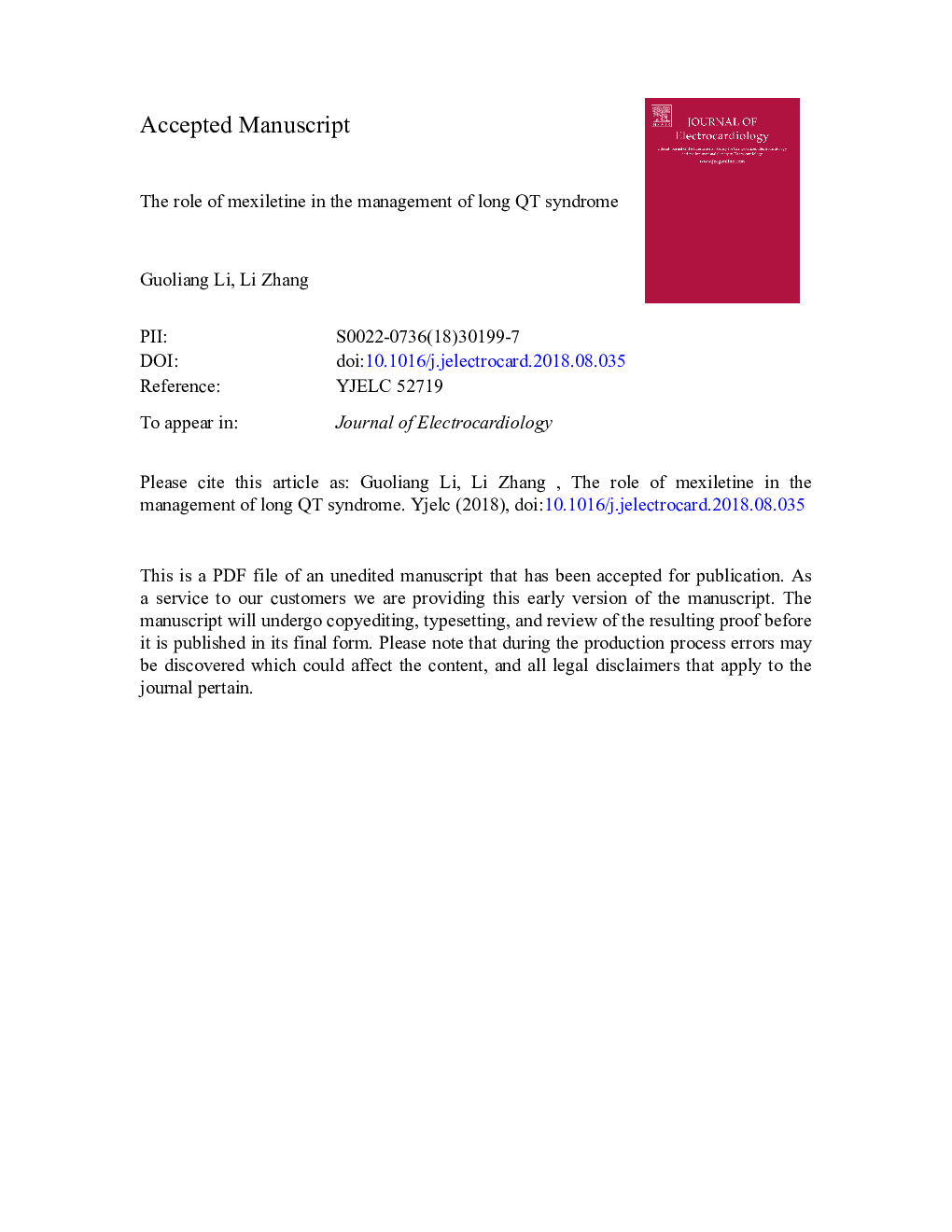| Article ID | Journal | Published Year | Pages | File Type |
|---|---|---|---|---|
| 10143653 | Journal of Electrocardiology | 2018 | 23 Pages |
Abstract
Congenital long QT syndrome (LQTS) is a hereditary cardiac disorder characterized by QT-interval prolongation and T-wave abnormalities on electrocardiogram (ECG), and is associated with an increased risk of torsade de pointes and sudden cardiac death. Beta-blocker medication is effective in most patients except those with a very slow heart rate. Increased late sodium currents (INa-L) can result in bradycardia-dependent QT prolongation. Mexiletine, an inhibitor of INa-L, is not only effective in treating type-3 LQTS, but also shows the promise in managing LQTS patients of other genotypes with markedly prolonged QT interval at slow heart rates.
Keywords
Related Topics
Health Sciences
Medicine and Dentistry
Cardiology and Cardiovascular Medicine
Authors
Guoliang MD, PhD, Li MD,
